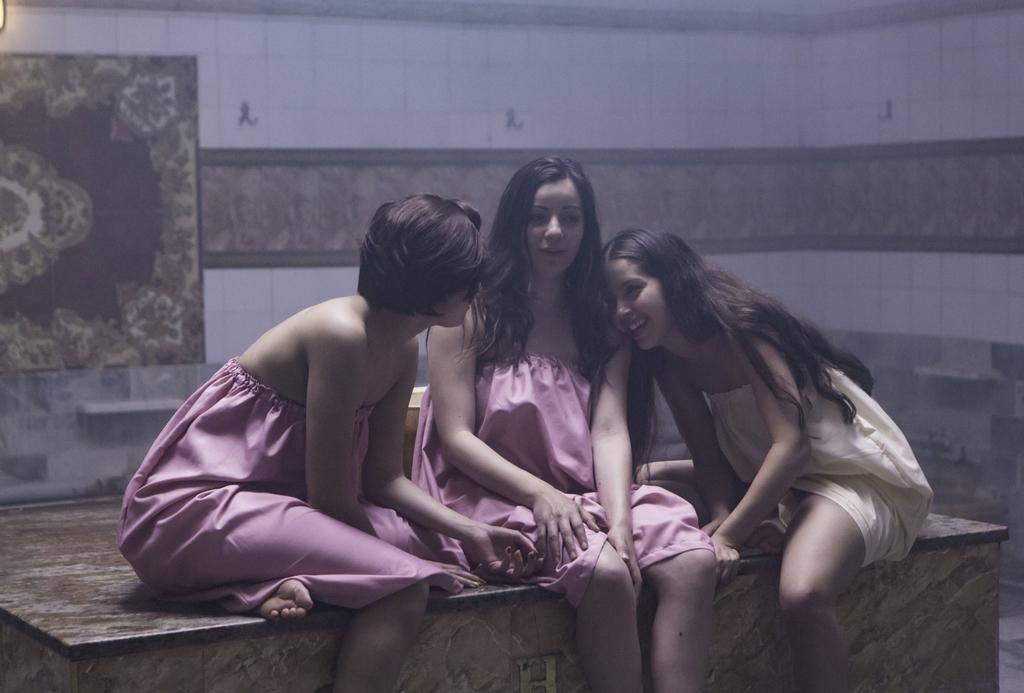
- Golden Globe Awards
Papicha (Algeria)
Papicha is an Algerian word that refers to a funny, attractive, liberated young woman. And Nedjma surely fits the description. In the 1990s Algiers, she is an effervescent 18-year-old student who dreams of becoming a fashion designer. At night, she sneaks out from her university campus to go clubbing and meet with her girlfriends to whom she sells her creations.Full of energy and hope, she seems oblivious to the looming threats and danger of a political climate that is becoming increasingly more conservative. Life must go on for her. Bravely, maybe foolishly, rejecting the new bans set by Islamic radicals, she still refuses to give up her ideals of freedom or consider leaving the country she loves. To fight back, she decides to organize a provoking fashion show featuring haiks, a traditional women’s garment worn in the Maghreb region, similar to the niqab. When family tragedy strikes, she is more determined than ever to go on and be herself at all costs, no matter what the consequences might be.Set against the backdrop of one of Algeria’s darkest times, the rise of fundamentalism during the Black Decade that saw a civil war that resulted in more than 150,000 dead, several thousand forced into exile and one million displaced, Papicha is Mounia Meddour’s, first feature, partly based on her personal experience which parallels Nedjma’s in many ways. “I was like her, she admits. And I wanted to tell the story of this young woman who, through her resistance, takes us on a great journey fraught with pitfalls that show multiple facets of Algerian society with its resourcefulness, mutual support, friendship, love, and struggles. She is not against religion: she is fighting in her own ways the abuses carried out in its name.”The 41-year-old director chose to shoot her film in Algiers for authenticity. “It’s the city where I grew and lived until my family received death threats and left for France when I was eighteen. It allowed me to include almost documentary-like veracity.” And without unnecessary pathos, Papicha manages to effectively portray a kind of young woman on fire, with her hopes and resilience. A powerful feminist statement, an ode to freedom against religious fanaticism that can resonate well outside what happened in Algeria. “For me, adds Mounia Meddour, “the movie is really about the emancipation of Nedjma, who is more or less the representation of the image of all women.”To play Nedjma, she chose Lyna Khoudri winner of the Best Actress Prize at the Venice Film festival in 2017 for her performance in Sofia Djama’s Les Bienheureux (The Blessed). “I was immediately captivated by her strength and her fragility, says Meddour. I liked that chemistry. In her, there is innocence and enthusiasm, but also formidable rigor and need for truth. Talking with her, I discovered that her personal history was very close to my own. Her father was a journalist and her family had to leave Algeria. She had to rebuild everything, like me. I couldn’t have found an actress that could better understand Nedjma.”As the country prepares for a decisive presidential election this year, the Algerian authorities have recently canceled the release of Papicha without explanation, even though it was partly produced with public money from an organization linked to the Ministry of Culture. Many see this ban as retribution for Mounia Meddour and her actresses’ very open support to the movement against the current regime, showing off pins with the slogan “Yetnahaw gaa”, meaning “They all should go” during the presentation of the film at the last Cannes Film Festival. “We are so disappointed, the director wrote in response, not to be able to show a film we made with such passion, sincerity, and dedication to reflect the courage and strength of the Algerian women and men fighting for their freedom, their emancipation, and their dreams.”

